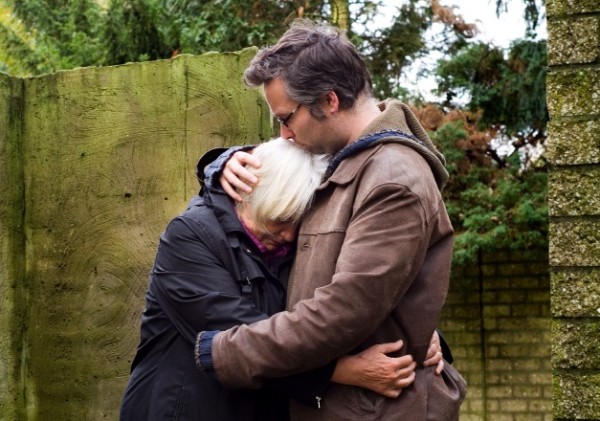Why Evil and Suffering Don’t Disprove God
by Brandon Vogt
Filed under The Existence of God
NOTE: Today's post is in response to Steven Dillon's post, "Why I Don't Think God Exists."
I’d like to begin responding to Steven Dillon’s guest post on God’s existence by complimenting his thoughtful and candid writing. I especially appreciated his opening paragraph where, with great vulnerability, Steven acknowledged that he wished God existed.
Some atheists desire just the opposite. The philosopher Thomas Nagel admitted in his book, The Last Word:
“I want atheism to be true and am made uneasy by the fact that some of the most intelligent and well-informed people I know are religious believers. It isn’t just that I don’t believe in God and, naturally, hope that I’m right in my belief. It’s that I hope there is no God! I don’t want there to be a God; I don’t want the universe to be like that.”
By admitting his preference for an all-loving, all-powerful Father who brings life and order to the universe, Steven implicitly confirms his openness to God’s existence, a sign that he hasn't a priori rejected the possibility of God.
But as we all know, wishing something to be true doesn’t make it true. Steven offers what he considers a strong argument against God, one that presumably prevents him from believing. He outlines it this way:
Premise 1: If God exists, there are things that he will have had to have done.
Premise 2: God would not do at least one of these things.
Conclusion: God does not exist.
After offering this syllogism, Steven moves on to defend its two premises. Regarding the first, he states:
“God is traditionally conceived of as being perfectly good and the ultimate source, ground, or originating cause of everything that can have an ultimate source, ground, or originating cause. . .
Moreover, nothing that has happened will have happened without his permission. Each of us would be under his care as he chose to sustain us in existence from moment to moment.”
I commend Steven for accurately defining God as “perfectly good” (though classical theists would likely prefer “the Perfect Good”) as well as “the ultimate source, ground, or originating cause of everything that can have an ultimate source, ground, or originating cause.” No problems there. Moreover, Steven rightly notes that “nothing that has happened will have happened without [God’s] permission.” This aligns with Christian's affirmation of God’s ultimate sovereignty.
However, it’s difficult to see how the above points support or are even relevant to Steven’s first premise. Claiming there are things God “will have had to have done” is to assume some binding duty outside of and above God—some requiring authority which assigns duties to God (like a mother mandating her child to perform certain tasks). Yet this contradicts Steven’s own description of God as “the ultimate source, ground, or originating cause.” God can’t be the ultimate ground of morality and responsible to a higher moral authority. That’s a self-contradiction.
On the other hand, if Steven simply means that God has to perform or refrain from certain moral acts because of his nature (e.g., that God has to love his creation because he is all-loving), then that’s an obvious and unhelpful tautology. It’s difficult to determine which of these two scenarios Steven meant, but it doesn’t seem either supports his first premise.
The real crux of Steven’s argument, however, begins in his defense of his second premise. There he claims:
“If God exists, then due to his role as the ultimate cause, he will have had to have given his permission for every single thing that has ever occurred, including . . . the Holocaust . . . [and] every heinous count of abuse that children have been subjected to. But, this seems beneath God and more like the track record of a morally impoverished deity.”
This is, of course, all true. If God is all-powerful, and if nothing occurs without God’s permission, he will have had to permit these heinous and seemingly indefensible tragedies. It also might seem, from our limited perspective, that permitting such acts would be “beneath God.”
But from there it does not follow that God has no good justification for permitting them.
Christians have consistently pointed out that because of God’s unique, metaphysical position, beyond space and time, he can have morally justifiable reasons to allow certain acts of pain and suffering—reasons that we're just not privy to. Just as we allow our children to experience darkness and hurt sometimes when we know it will bring about a greater good, God could have good reasons to permit apparently heinous acts. (Note: I’m not arguing here that God necessarily does have good reasons in any specific case, only that there’s no logical reason why he couldn’t have good reasons to permit evils in general, reasons we're just not aware of.)
Steven goes on to say:
“Typically, you should not allow children under your care to get beaten and molested. Perhaps there could be an exception to this rule, probably in what I’m guessing is a farfetched scenario. But, it is still a rule, and it thus expresses what is normally the case. To argue against this is to adopt the disturbing position that it is usually not wrong to allow children under your care to get beaten and molested.”
The first two sentences are true and agreeable, but the third does not logically follow. To claim that in some cases it might be possible for someone to have a morally justifiable reason for permitting an evil like child abuse does not necessitate believing that “it is usually not wrong to allow children under your care to get beaten and molested.” That’s simply a non sequitur.
It should be pointed out here that, once again, Steven has failed to provide any support for his second premise. It’s not clear how he supports the claim, “God would not do at least one of these things [that he has to do].” Steven never explains why it’s logically impossible for God to have morally justifiable reasons to allow suffering in one, many, or all cases.
Moving on to his conclusion, Steven acknowledges that his argument isn’t airtight, and thus not logically stable. He candidly admits:
“For all its beauty, our world just seems too ugly to include God in it. I certainly won’t pretend like this is a rationally undefeatable argument, but I also don’t think it’s anything like a pushover.”
I agree with Steven that his argument is not “anything like a pushover.” I agree with Thomas Aquinas who famously concluded that the “problem of evil” constitutes one of only two serious arguments against the existence of God.
I also agree with Steven that his argument is rationally defeatable. For example, Steven claims “our world just seems to ugly to include God in it.” Besides the fact that ugliness in the world is not incompatible with God—Christians have a perfectly logical explanation for moral ugliness: Original Sin—there’s a large difference between what seems to be true and what really is. For example, it may seem to be a remarkable stroke of luck that I was dealt two royal flushes in a row. But as my perspective widens and I’m given more background information, I learn the deck was stacked beforehand—a fact I wasn’t in position to previously know. Thus my perception changes: an apparent truth becomes, in fact, an illusion.
The same holds in the case of evil. Neither Steven, nor I, nor anyone in this world are in the privileged epistemic position to determine whether God has good reasons to allow evil. We simply can’t see the entirety of space and time (past, present, and future) the way God can. We can’t perceive the “butterfly effect” of events that may emerge out of a tragic event. Therefore we must acknowledge, in humility, that we can’t necessarily suppose “what seems to be the case” regarding the moral permissibility of allowing evil may, in fact, not be the case. We must acknowledge that God could have good reasons for allowing evil that we're just unable to glimpse.
Before wrapping up his article, Steven asks:
“How shall a theist respond to this argument? Is it not normally wrong to allow children under your care to be abused? Are we not under God's care? Or perhaps she will simply say the arguments for God’s existence are just too strong.”
To answer Steven’s three questions in turn: it is normally wrong to allow children under your care to be abused (note: God normally does not allow the children under his care to be abused); we are under God’s care; and it’s true that other arguments for God’s existence (like the arguments from contingency, fine tuning, first cause, etc.) are very strong.
Yet none of those three questions reveal how most Christians would answer Steven’s primary argument. The simplest and strongest response, as I’ve noted above, is this:
There is no logical contradiction between an all-loving, all-powerful God who permits evil in the world. To deny this, an atheist would have to show definitively that God could not have morally justifiable reasons for permitting evil in any circumstance. And since we’re in no position to judge whether God has such reasons, the existence of evil (i.e., pain, suffering, abuse, etc.) simply does not pose a strong argument against God’s existence.
In Steven's final paragraph, he writes:
“However we might respond to [the problem of evil], keep in mind that it won’t do to argue that God might allow things like the Holocaust, or human trafficking, or that God could have good reason for doing so. No has said that he couldn’t, that’s not the issue at hand. What needs to be shown is that God would allow these things, theists will need to take the risk of identifying the reason why God would allow the Holocaust, or human trafficking, and seeing whether that identification can stand to reason.”
I'm happy that Steven concedes that God could have good reasons to permit certain evils. But then he makes a subtle, yet significant move in his final sentences. He attempts to shift the burden of proof onto theists, challenging them to disprove his argument against God, instead of assuming the burden himself—instead of marshaling his own evidence in support of his own claims.
But the theist is under no such responsibility. If Steven claims that the existence of evil is logically or evidentially incompatible with God’s existence, he needs to show why. It won’t suffice simply to demand that theists show how God and evil co-exist. To say it another way, it’s fallacious to make a positive claim and then demand others disprove your claim—you have to provide evidence yourself! This is precisely why atheists won’t allow Christians to say, “God exists! And if you don’t agree, you have to show why he doesn’t exist!”
In the end, the honest theist can respond, “Look, we don’t know why God chose to allow the Holocaust. We also don’t know why he chooses to allow human trafficking. We can point to some obvious goods that result—like the gift of free will, a good that would be undermined if God stepped in, usurped human action, and disallowed the Holocaust. But in the end, we’re just not in a position to judge whether God has morally justifiable reasons to allow these things."
That admitted ignorance, a result of our limited knowledge and perspective, does not imply God’s non-existence. It’s simply a fact that we’re in no place to judge the moral permissibility of God’s actions.
For all of the reasons above, Steven’s argument fails. He does not provide substantial support for either of his two premises, and he does not show why evil logically contradicts God’s existence.
(For a longer response to Steven’s claim, I suggest reading Alvin Plantinga’s groundbreaking book, God, Freedom, and Evil. That book has caused many well-known atheists like J.K. Mackie to say, “We [atheists] can concede that the problem of evil does not, after all, show that the central doctrines of theism are logically contradictory with one another.” I also highly recommend chapters six and seven in Trent Horn’s new book, Answering Atheism.)
Related Posts
Note: Our goal is to cultivate serious and respectful dialogue. While it's OK to disagree—even encouraged!—any snarky, offensive, or off-topic comments will be deleted. Before commenting please read the Commenting Rules and Tips. If you're having trouble commenting, read the Commenting Instructions.













